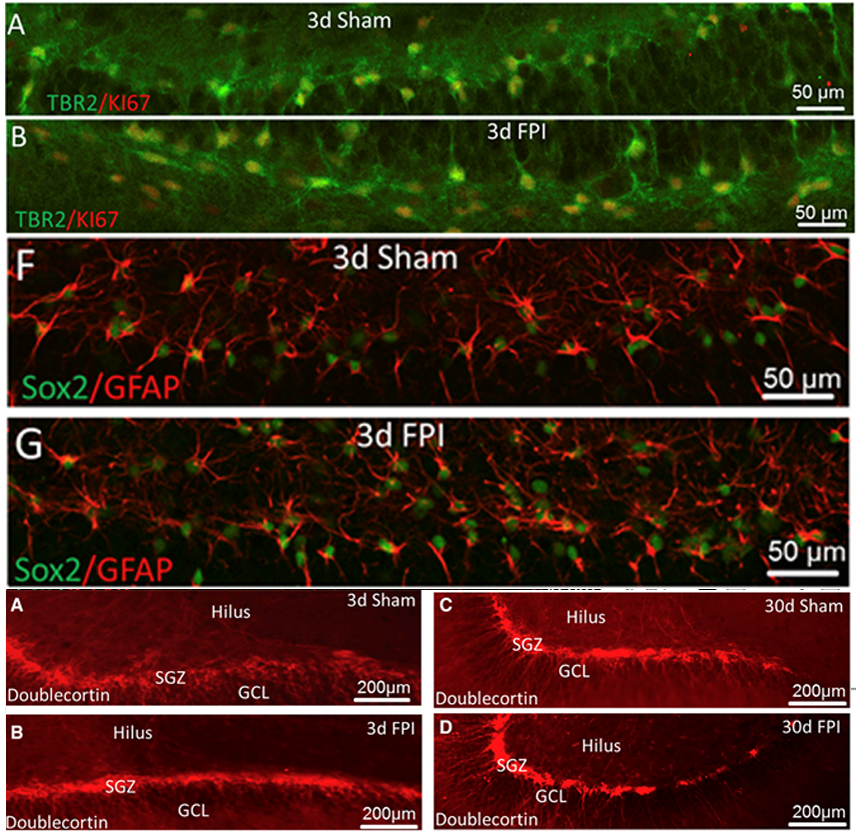
Neuberger, E. J., Swietek, B., Corrubia, L., Prasanna, A., & Santhakumar, V. (2017). Enhanced Dentate Neurogenesis after Brain Injury Undermines Long-Term Neurogenic Potential and Promotes Seizure Susceptibility. Stem Cell Reports, 9(3), 972-984. doi:10.1016/j.stemcr.2017.07.015
The excessive burst of new brain cells after a traumatic head injury that scientists have traditionally believed helped in recovery could instead lead to epileptic seizures and long-term cognitive decline, according to a new Rutgers New Jersey Medical School study.
“There is an initial increase in birth of new neurons after a brain injury but within weeks, there is a dramatic decrease in the normal rate at which neurons are born, depleting brain cells that under normal circumstances should be there to replace damaged cells and repair the brain’s network,” said Viji Santhakumar, associate professor in the Department of Pharmacology, Physiology and Neuroscience. “The excess new neurons lead to epileptic seizures and could contribute to cognitive decline.”
Press:
- After Injury, Brain Cell Births May Cause Seizures, (Futurity.org)
- Memory Decline After Head Injury May be Prevented by Slowing Brain Cell Growth, (Rutgers Today)
